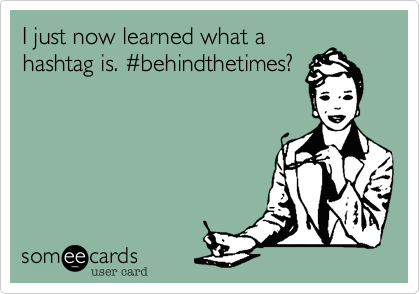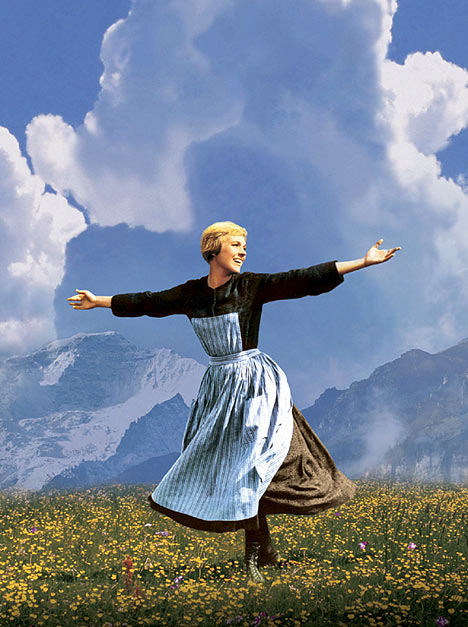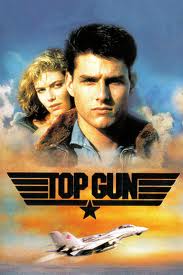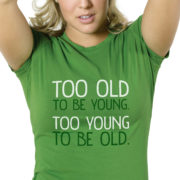What’s In A Name? Should It Be On Your Resume?
 Let’s dive a little deeper into the psychology of your resume and the effect of names, or in fact the words in general, that you put on it.
Let’s dive a little deeper into the psychology of your resume and the effect of names, or in fact the words in general, that you put on it.
Of course your name should be on it…big and bold and at the top of a hard copy or PDF version along with your contact info. Your online profiles place your name prominently by default. But what about names of directors, teachers, or even stars that you’ve worked with? Should they go on there too?
In a word YES, but ONLY if they are just as, if not more, recognizable as yours and give influential meaning to the reader of your resume. I’ve seen in the last few years the trend of adding a 4th column or replacing a production or theater company with a director’s name. Why? Because someone told you to or because everyone is doing it?
That’s called the blind leading the blind. Mass mentality. Not knowing how to market yourself correctly.
Why would you put student director, Joe Blow, on your resume? Wouldn’t Columbia Film School or USC Grad Film seem a better visual and psychological connection for an agent or casting director to view and evaluate you on rather than an unknown person that has no meaning to them? Industry professionals appreciate work done at the University level and of course these schools have a credibility and history so it explains more about YOU to see the recognizable school names…so take Joe Blow off.
What about Steven Spielberg? Do not put his name there unless you had a speaking role in a recent feature and were actually directed by him. The industry can certainly tell based on your union status and other credits if you were a background actor and putting Steven’s name on your resume now doesn’t enhance your status it hurts it.
In fact, agents and casting directors connect more to production companies and theater companies/producers because of their (most likely) multiple and prominent projects over years. The more well known the name of the person, company, network or school is, the better for you!
The same thing applies for stars. If you worked with them in a speaking role but the play, webisode, indie film, or other work title isn’t well known, putting the star’s name raises the visibility of the project, and you by association.
How about those teachers? Absolutely…and it’s even better if those teachers are known and respected by the industry. Take this into consideration the next time you’re looking for a great class and skill set to add. Your talent agent (or perspective rep) would certainly like to see an audition technique class taught by a working casting director as that then becomes a connection for them to leverage in a submission for you on their next project.
And if you want to get to the nitty gritty of the psychology of words in general, consider the example of an @aol.com email address these days. You know immediately that anyone using one is over 40! (Yes, I still have one!) It’s all about the immediate and automatic psychological connection we make between the words we view and our thoughts about them.
The names of the characters or kinds of roles you played can have a great impact. For example, if your brand and product is an innocent/ingenue and you played a character named Gladys, that’s a disconnect, as we stereotypically think of Gladys being an older person’s name.
If you’re a leader type and you’re carving this perception with the credits on your resume, seeing the words (roles) Lawyer, Politician, Judge will have the reader of your resume understand this. This does help in the beginning of your career when you have background credits or non-speaking roles in projects.
This is not to say you will be making things up that aren’t true on your resume, it’s saying that you can position your credits, take things off that don’t belong, and have complete creative control over the perception and product you’re selling.
There’s a ton of marketing psychology in play when industry professionals are reading your resume and looking for that “gut check” (at a glance most of the time) so the more you know about proper placement of words and name value, the better odds you’ll have of getting in the door to show your stuff. After all, your resume is the tool that, along with the picture(s) that they see first, will get you that audition or not.
Have any comments or stories to tell? I’d love to hear from some of you that I’ve worked with and hear about the adjustments we made on your resume and how they’ve impacted your audition rate.













Yes, AOL…. fine….?
Excellent Lisa
Thank you
In your opinion should we list our credits from newest to oldest? Or high profile credits/names first?
Hi Eric, great question. Chronology isn’t what its cracked up to be. Putting your best known role, or best known show first is the attention grabber when folks are reviewing your material quickly. Of course if you have a recent credit that is also a name grabber, that is what works best. One of my best credits in musical theater is Carousel at Houston Grand Opera directed by a Tony award winner and it’s near the top of my resume though I did it in the 80’s. My last prominent TV appearance was in a 3 month recurring role on All My Children, and though it’s off the air, it still holds weight. It beats out work I’ve done since then no one knows the title of and most likely hasn’t seen. So you’ll need to judge what works best for your resume…hope that helps!
Hey, Lisa, just a quick question regarding this blog post.
Are you writing that it’s a good thing to mix-up that third column?
That sometimes you write the director, sometimes the production co,
sometimes the actor you worked with?
Just checking.
Hi Melinda, another great question! Actually I don’t recommend mixing up the third column. I would always go for the production company or theater company first as again, they are most likely going to have a bigger and better reputation and connection than any individual. If you do want to call attention to the director there’s no real right answer here. It depends on the amount of space on a hard copy/pdf or in an online profile if there is a 4th column, put the director there only on the projects where it counts. So if limited space you can put (dir. Steven Spielberg) next to the production co. name or (Spielberg) or you can even put it in the first column after the title of the project: Lincoln (dir. Steven Spielberg) – works in this case because of the short title. May not fit if it was Indiana Jones and the Kingdom of the Crystal Skull. Get it? As for stars, again, if the project is already associated in the reader’s mind with the star you don’t need to list them, but if not, then I tend to like putting their name next to the project in parenthesis. No real formula, just what works best. Also, people read, at least in the US, top to bottom and left to right. When glancing for info, you’ll want to list the most prominent and connected words, people, projects with that in mind. Hope that helps!
Hi Lisa, I had a CD suggest to me to take off my student films- I had just listed the various schools in two lines to save space but thought they were important enough to have two lines. What do you recommend? Keep them or take them off? And thanks for the info!
Hey Erika, until you have “better” more recognizable films on your resume, most CDs would love seeing that you’ve been cast in student films from reputable schools. That’s the key…reputable schools. In this day and age when we can all shoot a film on our smartphones, a great film school with a wonderful student director is a step above. Columbia and NYU in New York are tops as are USC, UCLA and many others in LA. Depends on your location. They should be listed just like all the other credits as follows: Name of Project on the left, Name of Character and type of role in parenthesis (lead) for example in the center, and then the name of the school on the right. I avoid putting the student director’s name instead of the school as this person is meaningless to the reader of your resume and more likely the school will be recognized. Great question!